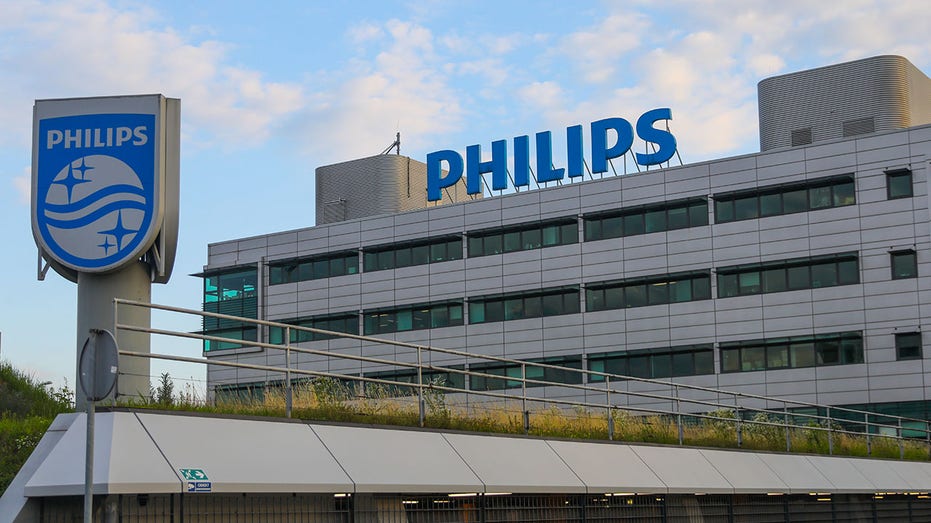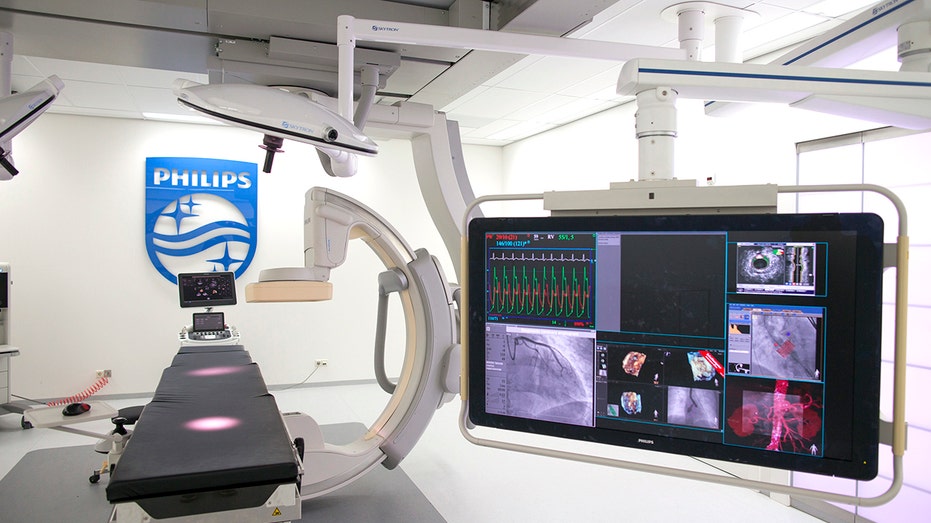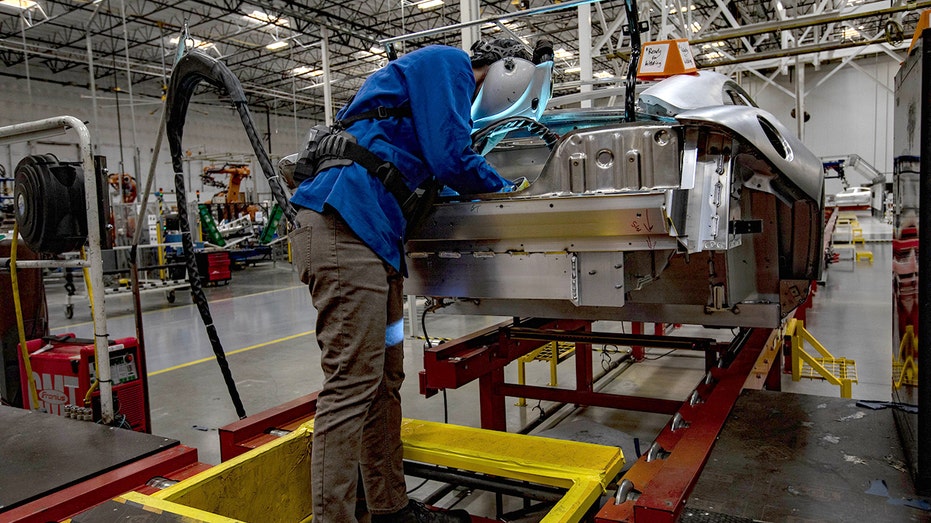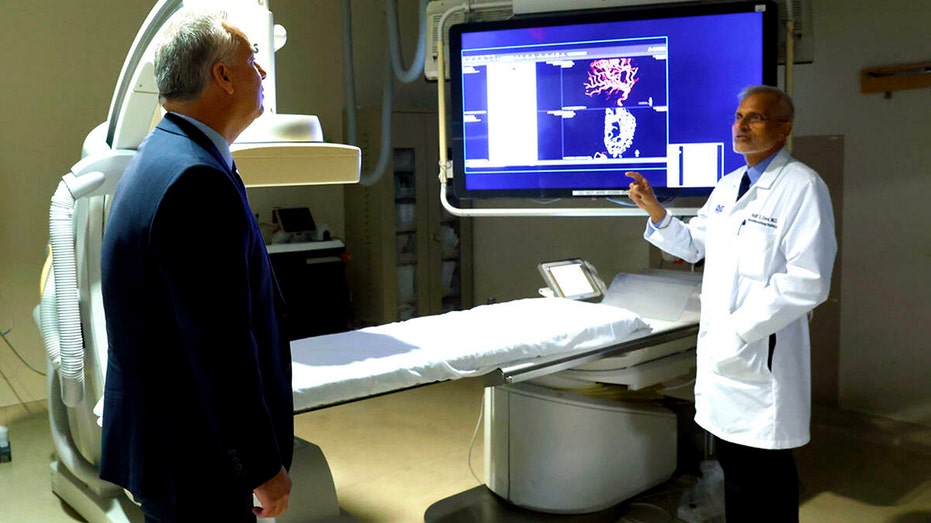FOX Business correspondent Lauren Simonetti reports from the Lincoln Technical Institute to discuss the future of trade jobs in the U.S. on ‘The Claman Countdown.’
Philips is investing more than $150 million toward U.S. manufacturing and research and development with the goal of expanding the production of AI-powered health technology innovations.
While it’s far from the company’s first investment in its domestic operations, it aligns with the Trump administration’s goals of boosting domestic manufacturing and helping the U.S. become less reliant on foreign goods.
Part of its latest investment includes the expansion of its Reedsville, Pennsylvania, manufacturing facility, which produces AI-enabled ultrasound systems for hospitals across the U.S., and the recently announced expansion of Philips’ image-guided therapy facility in Plymouth, Minnesota. The additional funds will be directed toward additional manufacturing and research and development projects over the next several years to support the company’s growth in the U.S.
GE APPLIANCES INVESTS $3B IN US MANUFACTURING OPERATIONS
Part of Philips’ investment includes the expansion of its Reedsville, Pennsylvania, manufacturing facility, which produces AI-enabled ultrasound systems for hospitals across the U.S. ((Bizuayehu Tesfaye/Las Vegas Review-Journal/Tribune News Service via Getty Images) / Getty Images)
“The proposed planned expansion of our manufacturing facilities is a demonstration of our deep commitment to the U.S. region,” Philips North America chief region leader Jeff DiLullo said in a statement. “Increasing our manufacturing and R&D capabilities will create jobs and accelerate our ability to deliver better care for more people with innovative AI-enabled solutions.”
This builds on top of the company’s existing investments in manufacturing and its annual $900 million research and development investments in the country, as well as its investments in nearly 17,000 employees across 40 facilities in the U.S. The company already boasts a significant presence in the U.S., with employees in every U.S. state supporting innovations used by clinicians and patients in 90% of hospitals across the country.
ELI LILLY INVESTING $27B MORE IN US MANUFACTURING

The latest investment builds on Philips’ existing investments in manufacturing and its annual $900 million research and development investments in the U.S. (Beata Zawrzel/NurPhoto via Getty Images / Getty Images)
Philips’ Pennsylvania site, which currently manufactures transducers, will expand its capabilities to be able to customize the software and configurations of ultrasound systems for specific clinical procedures in cardiovascular, general and maternal care. These ultrasound systems produced are expected to be used in hospitals nationwide, including the medical centers of the Department of Veterans Affairs and Department of Defense.
The expansion of the Reedsville site is expected to create 120 skilled manufacturing jobs, while Philips’ image-guided therapy facility in Plymouth includes the construction of a new medtech training center that is expected to create over 150 new jobs.

The expansion of the Pennsylvania site is expected to create 120 skilled manufacturing jobs. (Jasper Juinen/Bloomberg via Getty Images / Getty Images)
President Donald Trump has been reshaping global trade norms to boost manufacturing on U.S. soil by imposing tariffs on imported goods.
GET FOX BUSINESS ON THE GO BY CLICKING HERE
Since then, companies across several sectors, from Eli Lilly to Apple, have announced investments in boosting their domestic manufacturing in recent months. In April, Trump said more than $8 trillion has been pledged since the election, calling it one of the strongest private sector responses in U.S. history. The administration previously touted that “Trump is on a mission to make America the manufacturing superpower of the world.”
| Ticker | Security | Last | Change | Change % |
|---|---|---|---|---|
| PHG | KONINKLIJKE PHILIPS NV | 27.30 | +0.31 | +1.15% |
Bringing manufacturing back to the U.S. comes with several obstacles, including high labor costs, a shortage of skilled workers and the need for significant infrastructure investment.
While economist Michael Szanto believes reshoring manufacturing is a “worthy goal,” he said it “will take time and will not be without pain.”
“Building advanced factories like chip foundries can take years and cost billions of dollars,” Szanto said. He said prices may go up in the near term because the U.S. lacks “some of the people to even build some factories, let alone staff them.”

President Donald Trump has pushed companies to reshore manufacturing and jobs to the U.S. (Jill Connelly/Bloomberg via Getty Images / Getty Images)
However, he noted that the U.S. has a major advantage in manufacturing thanks to its abundant and affordable energy resources. He also emphasized that future improvements in automation and robotics will help address labor shortages.
Julio Gonzalez, a tax policy expert, told FOX Business that “the loss of manufacturing jobs has hollowed entire communities all across America, and the offshoring of service jobs such as call centers is exacerbating the problem.”
Gonzalez said tariffs “are proving to be an effective strategy for bringing manufacturing jobs back and revitalizing working-class communities.”



